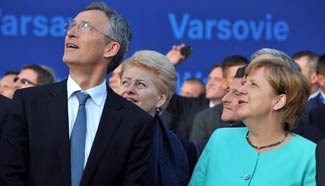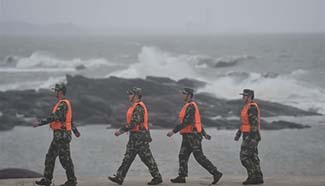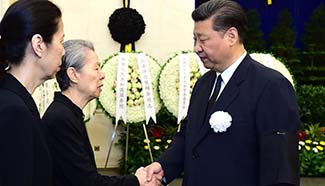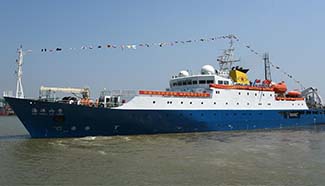MEXICO CITY, July 9 (Xinhua) -- The second edition of the Olympic Games, held in Paris 1900, was part of the 1900 Exposition Universelle, turning the sporting event into a disaster and leaving many doubts about its officialdom.
Due to the success of the first edition, the modern Olympics dignitary, Baron Pierre de Coubertin, decided to hold the Games in his home country, under the illusion that Paris could help to elevate the sporting event's popularity around the world.
However, in view of the French capital hosting the world's fair at the same time, it was not equipped to organize the Olympics as well. For that reason, the Olympics took place for over five months, minimizing the competition and almost dampening public interest.
This Olympics did not have appropriate facilities and the athletes, upon their arrival in Paris, found that accommodation had not even been reserved for them. The German delegation had to roam the Parisian streets for several hours as no one wanted to host them.
Worse still, no official prizes were handed out to the champions. Many of the participants died without knowing whether they had competed in the Olympics or not since the 1900 edition was presented as competitions, festivals and other events within the Exposition Universelle.
Even though publicity had improved during the turn of the century, the world's fair overshadowed these Games to the point that there wasn't even a single official poster. Only a few posters referencing the exhibition's contests still exist even though these were actually from the Games.
The Games of the II Olympiad took place between May 14 and October 28 in the Velodrome de Vincennes without an official Opening Ceremony.
In the sporting event there were 997 athletes from 24 countries and regions who competed in 85 events from 20 disciplines.
Perhaps, the most noteworthy thing to come from the Paris Olympics was that women participated for the first time, with 22 athletes.
Despite increasing the number of nations and sports, this Olympics was much less important than the previous one.
Athletics suffered the negative consequences more than any other discipline from such a badly organized event. The track was a 500-meter oval where the final straight had a certain incline and more than one bump. Also, in the javelin and discus throwing events were held in wooded areas.
Despite all this, the U.S. athlete Alvin Kraenzlein, won the 60 meters, 110 meters hurdle, 200 meters hurdle and long jump. He is the only track-and-field athlete in the history of the Games to have won four individual gold medals in a single event at an Olympics.
The first woman to win an event at an Olympics was the British tennis player, Carlota Cooper.
It is worth mentioning that tennis was one of the five sports where teams were made up of athletes from different countries. The other four sports were soccer, polo, rowing and tug-of-war.
Once the Olympics had come to an end, Coubertin said "if the Olympic movement survived these Games it would be a miracle."
However, the miracle happened.
OLYMPIC GAMES PARIS 1900 MEDAL TABLE
COUNTRY GOLD SILVER BRONZE TOTAL
France 26 41 34 101
United States 19 14 14 47
United Kingdom 15 6 9 30
Mixed Group 6 3 3 12
Switzerland 6 2 1 9
Belgium 5 5 5 15
Germany 4 2 2 8
Italy 2 2 0 4
Australia 2 0 3 5
Denmark 1 3 2 6










